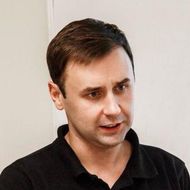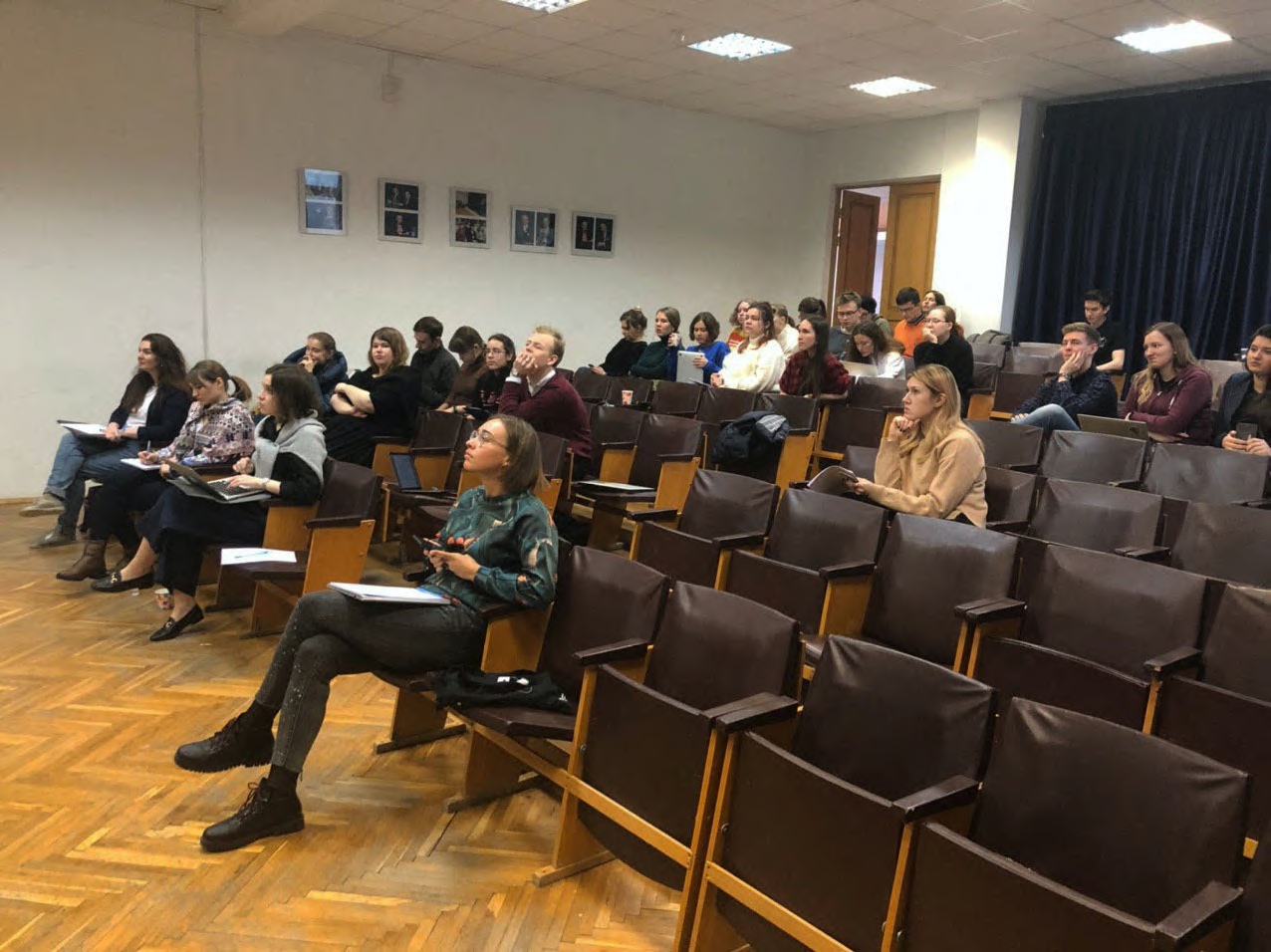From Application to Grant: How HSE University Prepares Future Researchers

In the beginning of 2020, six student research projects received funding from the HSE Centre for Student Academic Development (CSAD). The projects had been selected in a competition in which participants presented their research plans and the expected outcomes. At a reporting online seminar in July, team leaders summarized their achievements over the six months and spoke about how their work has been impacted by the pandemic.
The organizers of the competition, which kicked off in autumn 2019, were willing to help young researchers learn about how grants are assigned. They also wanted to give them the opportunity to submit applications for grants and defend their projects before experts. The initiative groups that won the CSAD competition received funding for their research projects.
Andrey Kozhanov, Director of the Centre for Student Academic Development

The competition is based on the idea of horizontal academic research initiated by students. We wanted to give students an opportunity not only articulate their research goals, but to go through the whole cycle, from submitting an application for a grant to winning their first research grant competition.
The first stage of application selection finished in December. During the three months, initiative research teams came together to work on application contents. Participants were supposed to create a research team, come up with a research plan, and outline the expected research outcomes.
‘They had to clearly explain in their applications the results they expected to obtain, since the money was assigned for practical results or developing a theoretical framework,’ said Vera Maltseva, Research Fellow at the HSE Institute of Education and member of the competition’s expert committee.
Grant funding is funding for future results
In the end, the committee supported six applications. In July, the research teams presented the interim results of their work at a reporting seminar. On the basis of this presentation, the competition experts will decide which projects will receive CSAD’s support in the next six months. Descriptions of each project can be found below.
1. Human-Robot Interaction
‘Our project consists of two parts: we studied conversations with an operator robot and investigated the operations of Alisa, a voice assistant built in Yandex.Station [Yandex.Station is similar to Amazon Echo]. In the case of Alisa, data collection was delayed due to the pandemic, since it was difficult to pass along the station device to members of the team,’ explains Polina Krapchitova, a project participant.
The students transcribed records of conversations with an operator robot and interviewed an Alisa developer. In the second stage, the team plans to prepare a paper on each of the two project parts.
‘Our group had evolved even before the competition was announced. We worked together at a Conversation Analysis Club organized by Andrey Korbut (Senior Lecturer at the Faculty of Social Sciences). We analysed different conversations and data. We were interested in conversations with various voice interfaces. Science Republic then announced a competition, and we understood that the format was relevant for us, with its clear institutional framework and deadlines,’ says Maxim Novokreshenov, the project’s leader.
2. Psychiatry in Russian Courts
The project participants look at how the subject of psychiatry is presented in Russian legal discourse. They examine court case materials related to psychiatric examination: the empirical base of the study included 378,000 cases. ‘Most of the documents are orders and resolutions, which means that the issue is discussed at the mid-level of the judiciary system and is rarely considered by federal law,’ said Oxana Mikhailova, the project’s leader.
The team consists of eight people, including first-year undergraduate students of Law and Political Science. In the first stage (by the end of 2020), the participants will complete data analysis, prepare a paper, and submit it to a journal. ‘First of all, we are looking at English-language journals, such as Discourse and Communication, Discourse and Society, and Sociology of Health and Illness,’ said Oxana Mikhailova. ‘Publications in Russian-language journals could become a good first step for our youngest participants, who are first-year students. For example, one of them is planning to write a paper on the subject of psychiatry in Russian civil law.’
3. Russian-Chinese Parallel RNC
RNC is the Russian National Corpus. The project participants are developing a parallel Russian-Chinese language corpus, expanding the pool of texts in both languages. ‘Our work is aimed at academic research, as well as at creating a good reference tool that will be useful to everyone who studies Chinese,’ said Kirill Semenov, the project’s leader.
Over the first six months, the team has exceeded its own plan and added over 2,000,000 words and word forms in the corpus. ‘That’s why today, we can talk about it as a corpus of acceptably small volume: good ones include tens and hundreds of millions of word forms. We have already collected a high-quality, statistically valid, yet small corpus,’ said Kirill Semenov.

The team had been working on this project before the competition began, and then decided to apply and get the funding. ‘Our team – which ranges from 15 to 40 people at different times – are students of China and programmers. Those who specialize in one don’t necessarily need to have the competencies of the others,’ Kirill Semenov explained.
Over the next six months, the project participants want to increase the number of texts, improve the corpus interface, and create a Chinese version.
4. Models of Russian Air Companies’ Value Proposition
‘The aviation industry has demonstrated quantum growth in recent years, but during the coronavirus pandemic, air companies faced the challenge of changing consumer behaviour,’ said Maxim Fokeev, the project’s leader.
The project participants analysed over 4,000 research papers on the topic and constructed a scheme of air companies’ value proposition. Then, they determined Russian air companies’ value models, and conducted an online survey among passengers in order to learn what impacts the choice of a specific air company.
The research showed that first of all, passengers look at the ticket price, which is expected. ‘Second, air companies see a key opportunity for their development in expanding the range of services; this is a new conclusion that hasn’t appeared in any Russian or international studies. But this expansion, the opportunity of customization, is not a factor that passengers use to diversify the companies and choose the airline,’ said Maxim Fokeev.
In the next stage of the project, participants will learn how the passengers’ preferences change after air transportation is restored. The sample will include passengers of both domestic and international flights.
5. Transformation of Women’s Role in Protests
The research authors are looking to determine how the role of women in protests is transforming by analysing protests in Ukraine and Armenia. ‘We are interested in post-protest transformation and its impact on gender roles,’ explained Maria Rybnikova, the project’s leader.
Over six months of work, the team has written a review of literature, carried out an investigative guide study, and conducted expert interviews. The next stage is content analysis of media and interviews with participants of protests in Ukraine and Armenia. Due to the pandemic, they weren’t able to conduct the interviews. As the researchers didn’t want to take them online, they have decided to wait for autumn: ‘The respondents may refuse to talk, since participating in protests is a very sensitive topic for both women and men. If September comes and it’s clear that nothing is changing, we’ll have to resort to online interviews,’ said Maria Rybnikova.
6. The Impact of Hunger on Social Pain
The team is checking the assumption that the feeling of hunger suppresses social pain – the feeling of loneliness and being excluded from social connections. ‘Initially we assumed that we would organize an experiment with about 100 participants. But unfortunately, due to the pandemic and the lockdown of the university, we couldn’t carry it out to the full extent,’ said Ruben Oganesyan, the project’s leader.
Forty-two participants were split into experimental and control groups. The control group were asked to have their breakfast and lunch, while the experimental group didn’t eat on the day of the experiment. Both groups then played a video game, followed by completion of a questionnaire measuring their social pain.
The study demonstrated that hungry people experienced social pain less intensively. An experiment at the laboratory is still needed to understand how this relates to self-esteem, sense of community, and sense of purpose.
If you want to join one of the student research teams, please contact CSAD: studscience@hse.ru.
Новокрещенов Максим Владимирович
Ruben Oganesyan
Maria Rybnikova
See also:
HSE Faculty of Mathematics Receives Mega-Grant from the Russian Government
43 projects from all over the country were awarded grants in Russia’s Eighth Mega-Grant Competition. HSE University’s application in support of the creation of a world-class laboratory in mathematics was among the winners. The academic supervisor of the new laboratory will be Professor Michael Shapiro of Michigan State University (USA).
HSE University Researchers Receive Fifteen Grants from the Russian Science Foundation
The Russian Science Foundation has announced the winners of four 2020 competitions. Some of the winners are from HSE University. They have received grants of 12 to 24 million roubles, for a term of two to four years.
Two HSE Projects Win ‘Mega-Grant’ Competition
A ‘Mega-Grant’ Competition for ground-breaking research projects funded by the Russian Ministry of Science and Higher Education was held for the seventh time, and this year’s competition winners included two projects that will be based at HSE University campuses. One research group will study dynamic systems at HSE – Nizhny Novgorod, and a new social neurobiology laboratory will begin work at HSE University in Moscow.
Forty HSE Doctoral Students Win Russian Foundation for Basic Research Competition
The Russian Foundation for Basic Research announced the results of the first project competition for doctoral students studying in Russian universities and research organizations. Among the winners are forty doctoral students from HSE University, whose projects will receive support over the next two years.
HSE Researchers Receive Grants in Russian Science Foundation Competitions
The Russian Science Foundation announced the results of its 2019 competitions for support from the Presidential Research Project Programme. One competition was for grants in support of research initiatives by early career researchers, and another was in support of research conducted by research groups headed by early career scholars.
Alexander Milkus, Laboratory Head at HSE, to Chair a Public Council at the Ministry of Education
A public council for the independent evaluation of the quality of education conditions has been created at the Ministry of Education of the Russian Federation. Alexander Milkus, Head of the HSE Laboratory for Educational and Youth Journalism, has been unanimously elected as its chair.
HSE Establishes Semyonov Award for Early-career International Researchers
Semyonov Award is designed as an internship at the HSE Laboratory for University Development and support to early-career scholars for participation in joint research.
European Research Council Provides Public Funding for Research & Innovation
On Wednesday, 16 May 2018, the President of the European Research Council (ERC), Professor Jean-Pierre Bourguignon, gave an open lecture at HSE on ‘Public funding for research & innovation: The experience of the European Research Council’. The lecture was organized by HSE together with the Delegation of the European Union to the Russian Federation.
Scientists From HSE Awarded New Grants from RSF
The Russian Science Foundation has announced the most recent winners of three-year grants for scientific research. Among the recipients are a number of projects carried out by scientists at the Higher School of Economics.
Center for Language and Brain Wins 3-Year Grant to Study Prevention, Diagnostics and Therapy of Language Disorders
The HSE Center for Language and Brain studies a broad range of topics related to the connection between the brain and language. For Svetlana Malyutina, Deputy Head, and Mariya Khudyakova, Junior Research Fellow, particularly interesting areas of focus include the breakdown of language processing after brain damage (e.g., stroke, neurosurgery, epilepsy) and language acquisition in children.


